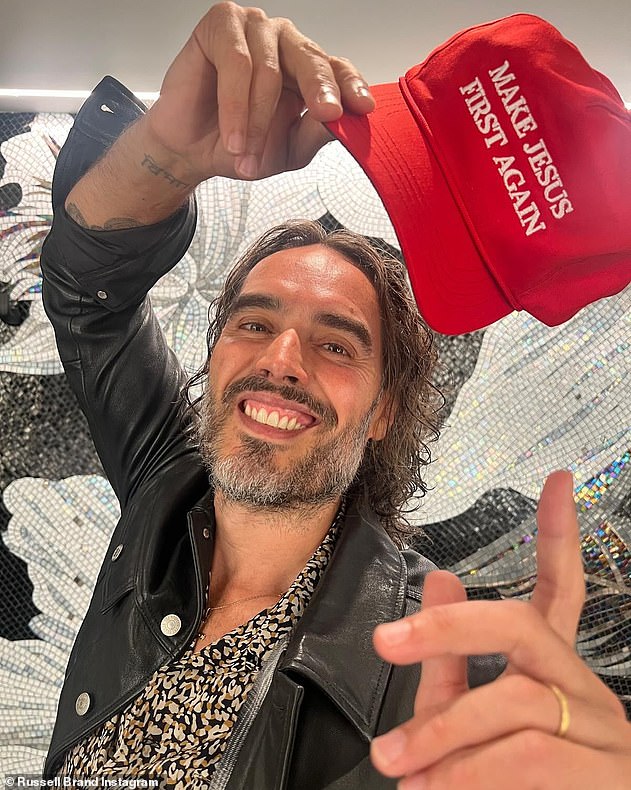Nicole Scherzinger recently found herself in hot water after she expressed admiration for a controversial post shared by Russell Brand. The post featured Brand proudly wearing a red ‘Make Jesus First Again’ hat, with a caption that read ‘God Bless America’. Scherzinger’s comment on the post, asking where she could find the hat, prompted backlash from fans who saw the accessory as reminiscent of Donald Trump’s ‘Make America Great Again’. Some followers criticized Scherzinger for seemingly supporting a message they found offensive, particularly given Brand’s own controversial history, which includes allegations of rape and sexual assault. The singer, who has not publicly endorsed any political candidate, was raised Catholic and has spoken openly about her faith in the past.
Brand, a British actor and comedian, has been vocal about his views on American politics, particularly the 2020 presidential election. In a podcast episode released before Joe Biden replaced Kamala Harris as the Democratic candidate, Brand expressed skepticism towards liberal critics of Trump and his supporters. He argued that, in a choice between Trump and Biden, voting for Trump was the more democratic and freedom-loving option, despite the negative portrayal of Trump in the media. Brand’s commentary on the election and the perceived biases against Trump supporters were met with mixed reactions from the public, with some viewers agreeing with his perspective and others feeling that his views were misguided.
The controversy surrounding Scherzinger’s comment on Brand’s post reflects the ongoing tensions in American society around political beliefs and allegiances. As a public figure with a large social media following, Scherzinger’s words and actions are scrutinized by fans and critics alike, particularly when they touch on sensitive topics like religion and politics. The backlash that Scherzinger faced for her seemingly supportive comment highlights the ways in which public figures are held accountable for the content they engage with and the potential implications of voicing support for controversial figures or messages.
In today’s highly polarized political climate, discussions around religion, freedom of speech, and democratic values are more contentious than ever. Public figures like Scherzinger and Brand, who use their platforms to express their views on these issues, are subject to intense scrutiny and criticism from both supporters and detractors. The debate over Scherzinger’s comment on Brand’s post is just one example of how divisive political discourse can be, particularly on social media where opinions can quickly escalate into heated arguments and personal attacks. As celebrities navigate the complexities of sharing their opinions in the public sphere, they must also contend with the potential consequences of their words and actions on their careers and public image.
Ultimately, the clash between Scherzinger, Brand, and their followers underscores the challenges of engaging in political discussions in the digital age. As individuals with significant influence, celebrities have a responsibility to consider the impact of their words on their audience and the broader public discourse. By voicing their opinions on sensitive topics like religion and politics, public figures like Scherzinger and Brand risk alienating portions of their fan base while also drawing attention to important social issues. The controversy surrounding Scherzinger’s comment serves as a reminder of the power and pitfalls of celebrity culture in shaping public opinion and influencing political beliefs.


